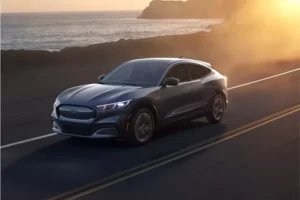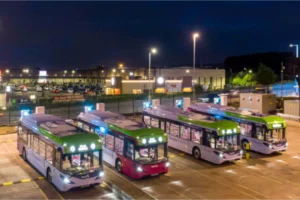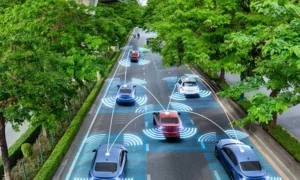Eurovia Surfacing has been able to achieve carbon savings of up to 25% by using a product that includes an additive that enables it to work at much lower temperatures than traditional materials.
The product, Tempera, is typically supplied at temperatures 40 degrees lower than a hot equivalent. Tempera requires less energy, and
generates fewer carbon emissions, during manufacture than conventional hot mix asphalts.
Eurovia says it has been drawing on expertise from across the organisation to deliver its low temperature asphalt binder course on the Essex Highways network.
Working together to continually review and develop products, processes and services is part of Eurovia team’s commitment to reduce its carbon footprint. Although warm mix asphalt has been around for some time, the climate impact commitment from local authorities is now driving the need for it to be the material of choice on the network, says Eurovia.
Following an APPG guidance document, which reinforced and further supported the use of warm mix products, Essex Highways challenged its supply chain to pursue innovative products and services to improve sustainability in the county.
The ‘green credentials’ of Tempera go beyond the manufacturing process, according to Eurovia. The fact that materials arrive on site at a lower temperature, the Eurovia Surfacing teams can complete the work in less time, as well as reopen roads more quickly. The lower temperature also
reduces fumes on site and is safer to handle. It also produces less steam during installation, so there are less visibility issues, particularly when it rains, according to Eurovia.
This approach forms part of Eurovia’s wider carbon reduction strategy, with a goal to reduce overall emissions by 40% by 2030 and achieve carbon neutrality by 2050.
The reduced temperatures throughout the process significantly decrease age-hardening, which maintains the material’s durability and improves its long-term performance. Eurovia Roadstone is continually refining the technology, enabling better utilisation at both the plant and on sites.
To date, Eurovia Surfacing has laid in excess of 3,500t of warm asphalt across the highways in Essex during the COVID-19 lockdown. The reduced traffic on the roads, enabled the team have been able to mobilise and accelerate the resurfacing programme. Volumes are continuing to increase with plans to introduce low temperature technology into a wider
palette of asphalt materials in the coming months.
The use of Tempera has been facilitated through the Materials Innovation Group involving Essex County Council, Essex Highways, Eurovia and other supply chain partners.
Simon Moroney, Eurovia Roadstone’s Divisional Director, said: “We are committed to creating a greener future and are using cutting-edge technology, combined with the skills and expertise of our Technical Centre, to continually improve our products that support this.
In the coming months, we will be developing our range of warm mix asphalt designs, so that we can provide the whole suite of structural layers with a Tempera solution. We are working towards a future where warm mix becomes the go-to product for all road surfacing.”
Paul Kidd, Eurovia Surfacing’s Technical Director, said: “Providing integrated solutions is a key part of Eurovia’s offer and we are embracing the opportunity to pursue and fast-track initiatives such as using warm asphalt for Essex Highways. Not only can we can deliver projects from product development through to installation with our in-house teams, but we can also implement innovations throughout the process to reduce both our own, and our clients’ carbon footprints.”





















